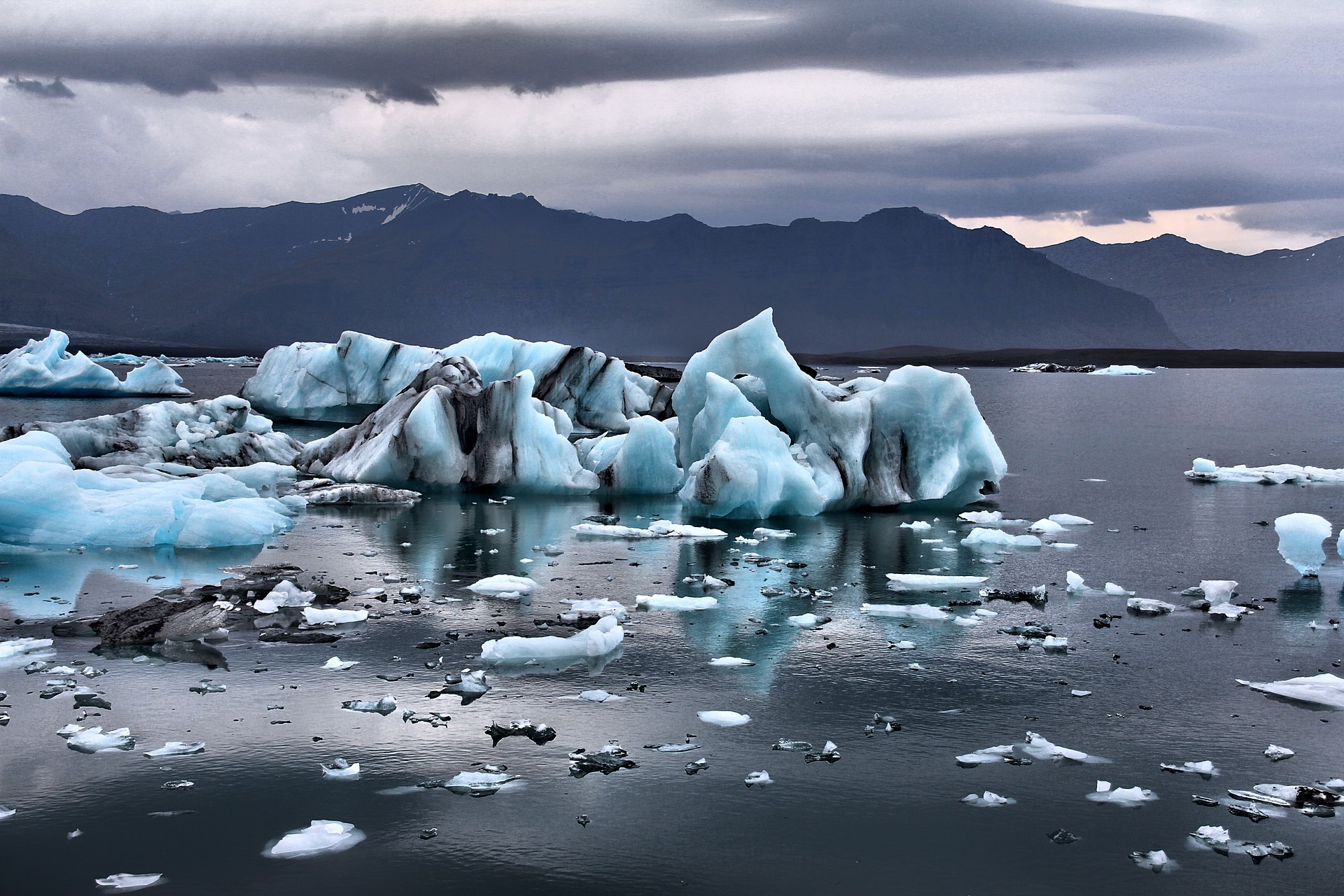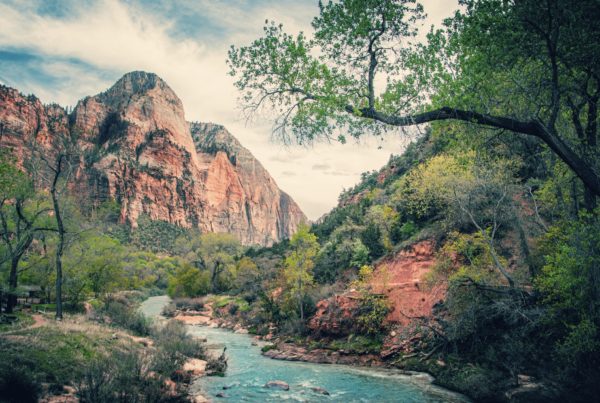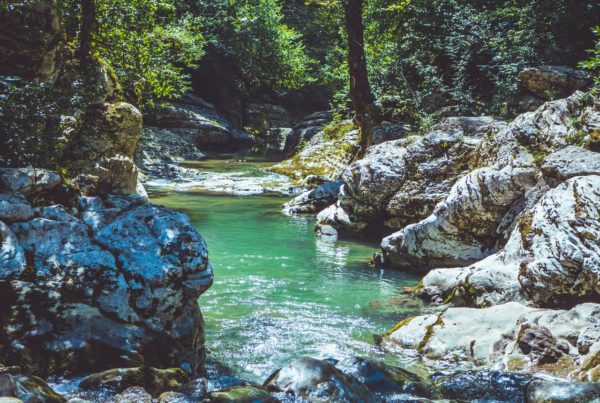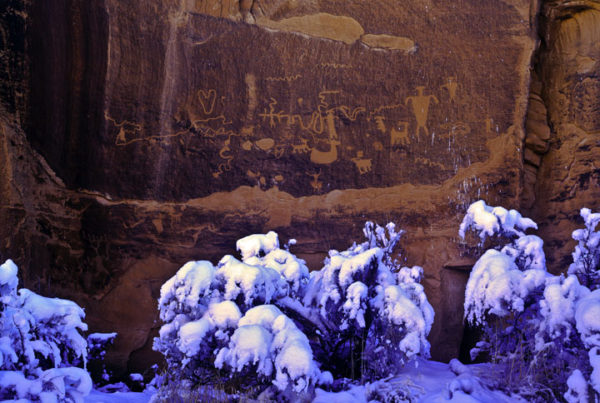[Quote excerpts are from her TEDWomen 2018 Talk titled, “The Most Important Thing You Can Do To Fight Climate Change: Talk About It”]
This past fall, I arrived at the Arrillaga Alumni Center on Stanford Campus, a short bike ride from not only where I grew up, but from where I was then living and working as a special education teacher in Palo Alto, California. I had seen an email inviting anyone who was interested to “A Conversation with Katharine Hayhoe” hosted by the Stanford Woods Institute for the Environment. I had heard of her through another friend and professor, George Handley of BYU who is a champion on the issue of climate and religion, and I was intrigued to hear what Dr. Hayhoe, a climate scientist and an Evangelical Christian, might say about the cross section of these two often opposing ideologies. George had endearingly referred to Katharine as a friend and ally, and I was anxious to hear someone of a different religious community espouse the same ideals but with different language and experience.
I arrived early enough to find a decent seat in a packed room of older citizens, Stanford affiliates, and younger students and professionals who looked around my age. I was not sure if anyone in the audience was there because they disagreed with Dr. Hayhoe and her work, but I did feel like those who were in attendance, including me, needed convincing that what she was teaching was possible—that having conversations with others about climate change could actually change their minds. Dr. Hayhoe was open, quick-witted, energetic, and confidently showed all her cards speaking of her family, her children, her activity and devotion to her religious community, and her work and research as a climate scientist.
Much of what she said resonated with me because I felt similarly defined by the values that I espoused and wished to share and find in common with others. But I wasn’t a climate scientist, I was just a teacher, with a couple of English degrees who loved talking about literature and the environment. I also struggled internally knowing that so much of why I felt the way I did about the environment and the natural world was fueled by my faith in God and my understanding of our role as stewards on the earth. But how could I share that, especially in the tech-driven circles of Silicon Valley? And more especially, amongst those of my own faith in a place as intellectual and business-minded as this?
Dr. Hayhoe spoke in human terms that resonated not only with me, but with those in the audience. The feeling was one of “this is possible.” She noted that climate issues are difficult to fix because of Tragedy of the Commons and the way to remedy that is to share stories from other countries and other people who are successfully making changes that have an impact. That, she said, is the most powerful motivator because our response cannot be fear-driven. We need a vision of a better future from creators, innovators, and regular people; we need good news and stories of hope.
After the conversation ended, guests were invited to a delicious spread of Stanford food. I wanted to ask her a question feeling that she would have something valuable to tell me personally. With my plate of food I lingered until she was free and I introduced myself. I told her I had gone to BYU and studied literature and the environment and was now a special education teacher in Palo Alto, but still had strong desires to write and be a voice advocating for environmental issues. How can I be effective? I asked. She looked at me knowingly, chuckling slightly that I must know her friend George Handley, to which I also laughed, because how else could I have arrived there? She was warm and direct in her answer. She told me, “You need to write for your own community of believers. They need your voice the most and you’ll have the most influence there.” I thanked her, and she went on her way trailed by other inquisitive guests toward the food tables. I felt almost as if I should have known that answer already, because in part I did, but I also recognized the importance of her encouragement from years of her own professional and personal practice of the principles she spoke about.
Since graduate school I had wrestled with the dream of wanting to become an influential writer in the world, in magazines, newspapers, or online forums that would really get traction in diverse communities. My identity though was full of buzzwords—religious, Christian, female, and Mormon—that seemed to conflict with the topics I was hoping to highlight like climate change, care for the environment, and earth stewardship. And yet, she was standing there before me as a professional scientist, a vocal Christian, and a Canadian living in Texas no less sharing experiences where she had done just that. She had successfully written and lectured and conversed at the highest levels of business, industry, and academia as well as in churches and local organizations about the things that mattered to individuals and helped them connect the dots to climate change. I didn’t need to break into other professional careers to have conversations that changed people’s minds about topics I cared about, I could do it right where I was.
The most valuable thing I learned from listening to Dr. Hayhoe speak is reframing how to step into, or rather, back into a conversation that is so often riddled with tense and defensive emotions. One of my favorite things about conversing with strangers is the moment when common ground appears and you both step onto it realizing, “Oh, we both care about the same issue” and as the conversation continues, how clear it becomes that despite different experiences or jobs or backgrounds, the sentiment you both feel is the same—you care about the people you love and the place where you live and your connection to it. This is what Dr. Hayhoe enthusiastically expressed is the key to changing people’s minds about climate change. And it’s not an “Ah-HA! Gotcha!” moment where they admit they were wrong all along and thank you for showing them their error. Because, let’s be honest, that never happens. It’s a moment defined by recognizing someone else’s humanity, because you’ve allowed them to recognize your own. It is what I think Dr. Hayhoe did so effortlessly and tactfully when she showed her cards early to give context to her work as a scientist, a professional consultant, a wife and mother, an active Christian, and a concerned citizen. Each role she plays and shares is an offering of “what might we have in common?” This taught me that difficult topics are not meant to be discussed in isolation. If we want to share opinions and influence people, it needs to be on the grounds of willingly showing our own cards—who we are and what we care about. And it is easier than I think we all realize because it is simply the task of getting to know someone and asking about what is important to them, and then sharing what is important to us.
So, let’s talk about it.
Other useful links:
- Dr. Hayhoe’s Op ed in New York Times “Caring About Climate Change Is The Christian Thing To Do“
- Dr. Hayhoe’s personal website.
- Dr. Hayhoe Ted Talk, “The Most Important Thing You Can Do To Fight Climate Change: Talk About It“
- Global Weirding video “If I just explain the facts, they’ll get it, right?“
- George Marshall Book “Don’t Even Think About It: Why Our Brains Are Wired to Ignore Climate Change“



